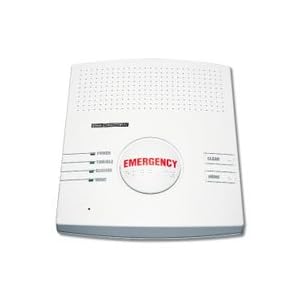If someone close to you has been diagnosed with this disorder, it is imperative that you research what to expect as the disease progresses. While every path of dementia is somewhat unique, there are basic stages that, let's say, Alzheimer's patients tend to follow. With Lewy Body Dementia, the progression has more extreme changes and can arrive very suddenly. Patients with Lewy Body Dementia will typically have hallucinations and delusions that are, in every way, very real to them. Trying to explain to them that these things did not occur will only make them upset. You may not be able to see or understand what they are experiencing, but, in my experience, it is as real to them as anything else that goes on around them. By not listening and talking through what they are experiencing, you will only cause unnecessary agitation. As a result of trying to dismiss them, they will lose trust in you. Patients that I have helped through this progression of Lewy Body Dementia are desperately trying to finding someone to believe them. Someone to discuss what is going on in their mind. Many times, in the earlier stages, as you talk through what they are experiencing, they can recognize on their own that it did not really happen.
Many times patients with Lewy Body Dementia will require assisted living or a long-term care facility to provide their care and safely manage their behaviors. These patients have a tendency to become aggressive even if for their whole life they have never even raised a finger of anger toward any living thing. They can have psychotic episodes that can arrive without notice or cause. They can have episodes when they are not able to recall any of the recent events that brought them to where they are. Their communication becomes very broken and hard to follow, which causes them frustration with their caregiver because they do not recognize that they are not speaking clearly - to them it is coming out clear as day.
I do not tell you this to incite fear for caregivers or patients dealing with this disorder. I tell you this so that you can fully understand the extent of the changes that you should be prepared for. Early preparation for their needs is vital as you prepare for this challenge. Your best chances at keeping some of the behaviors from becoming aggressive is by understanding that what they see and feel is real to them. Listen to them, talk to them, reassure them that you will do whatever you can to help them.
Today I had a 20-minute conversation with a client, diagnosed with Lewy Body Dementia, about the 20 men he saw on the roof this past weekend stealing internet signals from our company with a 9mm gun. Sounds ridiculous right? Of course it does, he even said as much when he started the conversation by saying, "I know you are going to think I am nuts but...". He needed someone to talk to about what he saw and express his concerns to make sure that someone would follow up on it to keep things safe. I was that person for him. I reassured him that I would report it to our IT department and they would follow up. He was happy and satisfied by that and was able to go about the rest of his day because he trusts that I will help him. He felt heard and validated, which is what he needs more than anything. Every time he comes to me with his concerns, I always listen and provide him a safe place to say whatever he needs to without feeling judged or looked at like he is crazy. There are some conversations when I can say to him "Do you think that really happened or might it be from your condition?" At times he can recognize that he really has only pieces to a story and that it did not really happen. Those occurrences are becoming less frequent.
I do not try very hard at all to help him see reality from his delusions because it serves no purpose for his quality of life. If listening to him for 20 minutes and giving him reassurance allows him to enjoy the rest of his day, that serves to improve his quality of life to a much higher level.
Quality of Life serves Aging with Ease!
| Click to visit site and learn more. |











